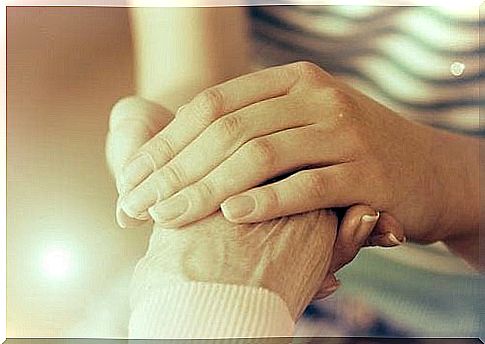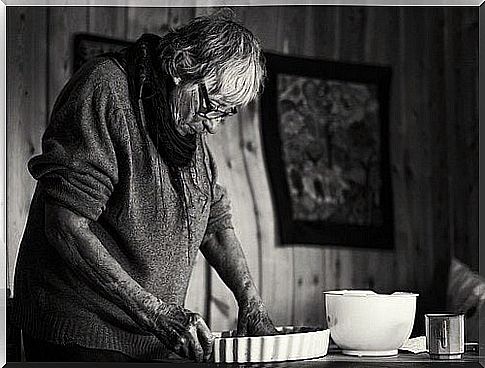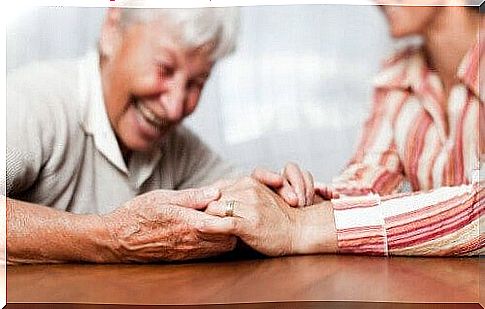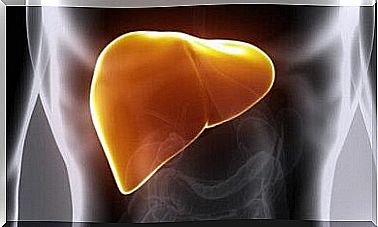The Care Syndrome: How To Take Care Of Caregivers

During your life, you may have cared for others, whether they are elderly parents, siblings who are ill, or a disabled child who needs daily attention. The “care syndrome” can affect everyone who is responsible for other people’s needs, health and well-being.
However, caring for another person can gradually lead to a physical and mental strain that you cannot overlook. It can happen slowly, but since your daily energy is focused on a person who is dependent on you, you end up ignoring your own needs. You become completely engrossed in the role of caregiver, so you forget what it is like to “be yourself “.
How to find a balance? How are you going to handle this situation that is so common in today’s society ? This is the topic of the day: the care syndrome.
The care syndrome is something that affects women the most

Statistics show that the responsibility for care almost always falls on women. This is a job that is done with love and care, with emotional and physical bonds – you can not just leave a family member or a person who needs your help to get through everyday life.
But when women take on the role of a caregiver, it is important to remember that:
- Almost 60% of people who have a caring family member have to put their own career aside for a while.
- Being a caregiver means taking care of the other person around the clock.
- These tasks are performed with love and affection, so it is common to feel anxious and afraid that the person who is dependent on you has immediate needs or is in danger. In reality, you need a break, and another family member should help you with this task.
- Most people are not prepared for this role. Therefore, it is easy to get overwhelmed, since you have no experience with how to lift people, or you can make mistakes when it comes to diet, hygiene, medication, etc.
- Caregivers are usually between 50 and 60 years old, and they already have their own medical conditions or physical limitations.
- Often caregivers have their own family members or dependents as well, including grandchildren or children…
- Caregivers often forget to set aside time for themselves to get some entertainment or pursue hobbies. L Ivens theirs is filled with physical and emotional pressure, which can lead to a vicious circle, causing serious injuries.
Signs that you are suffering from the “care syndrome”

Usually, caregivers are unaware of the emotional and physical damage they are suffering from. In fact, it is not uncommon to see a patient who is in good health and quality of life, while their caregiver has lost theirs, and suffers from chronic fatigue, back problems, stress or anxiety attacks, and often depression.
These are the symptoms you should be aware of:
- Physical and mental exhaustion
- Difficulty sleeping
- Mood swings
- Weight changes
- Addiction to painkillers
- Social isolation
- Cognitive difficulties such as memory loss or difficulty concentrating
Tips for avoiding the “care syndrome”

- Set a time each day when you have a few hours to yourself.
- Learn to delegate other tasks – this is absolutely necessary. Caring for another human being should not fall solely on one person, so it is important to establish a system with other family members or social services. This does not mean that you “do not care” about the patient, on the contrary. The more help you have, the more you are able to help them. Remember that when you are doing well, you will be able to perform more, but if you are depressed or run down, you will struggle to put in the same effort.
- Learn more about the disease or problem your patient is suffering from. Trust professionals, who can give you advice and help you perform your tasks in a safe and correct way.
- Make sure you always have a social life, and spend time with friends when you have the opportunity. Take care of your own feelings and your own happiness.
- It is incredibly important to set aside time for exercise. Take a walk every day, perform stretching exercises afterwards, and make sure you take care of your back.
- Do not hesitate to seek professional help if you are overwhelmed. You should not just go to the doctor for the person you are responsible for. You are also important, and if your health fails, this will affect everything else. Be sure to get help if it gets too much!









